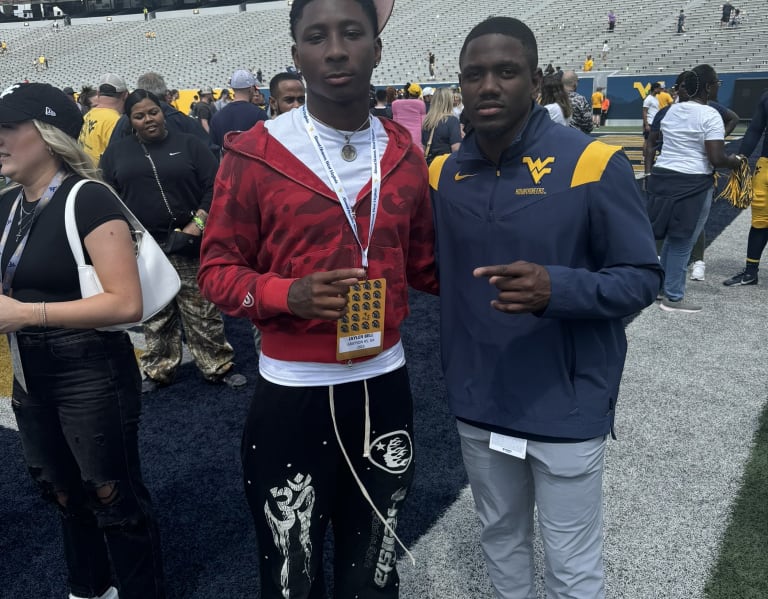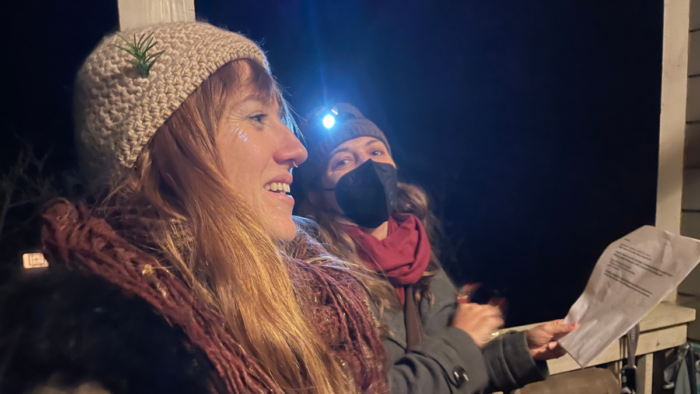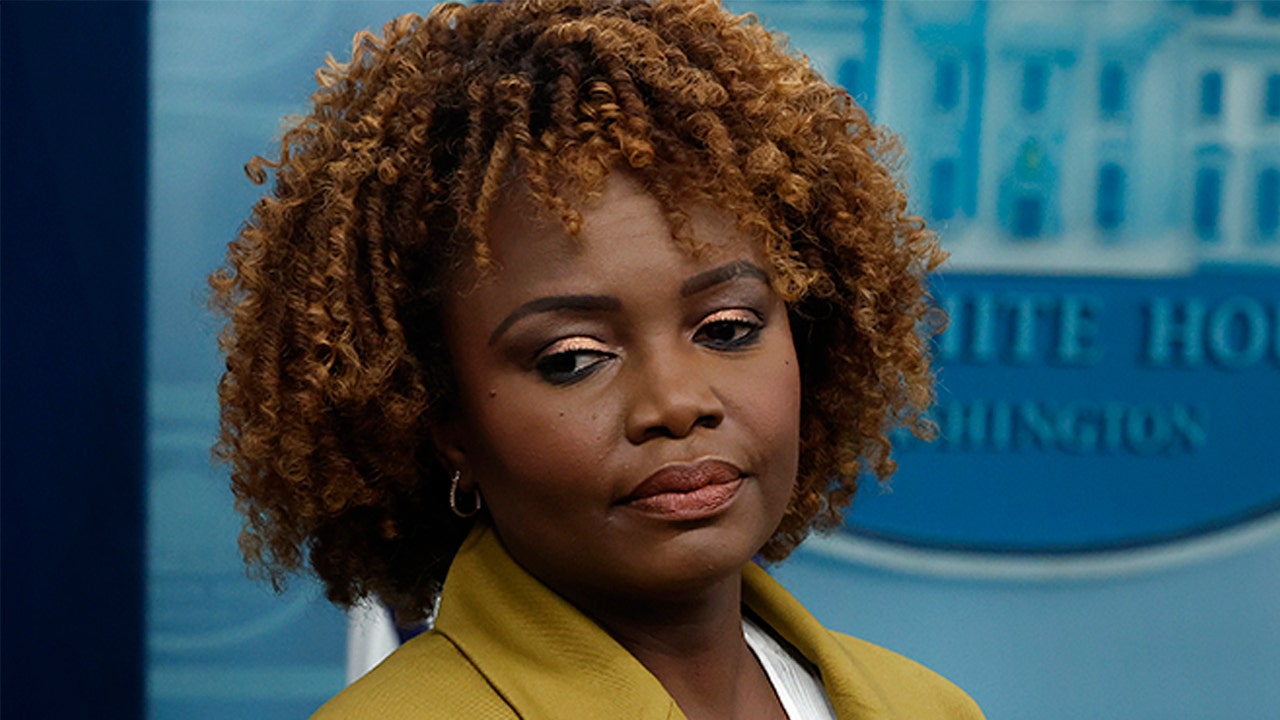A transgender middle-schooler in West Virginia cannot be barred from participating in cross-country running and track with other girls, the U.S. Court of Appeals for the 4th Circuit ruled Tuesday.
West Virginia
Appeals court allows transgender girl to stay on West Virginia track team

Now in eighth grade, Pepper-Jackson has identified as female for five years — nearly half her life, the court noted. Since elementary school, she has only participated in girls’ sports. She has a birth certificate that identifies her as female. And she takes medication to block male puberty and undergo female puberty, which the court said was key to its decision.
Pepper-Jackson “has never felt the effects of increased levels of circulating testosterone,” so “the fact that those who do benefit from increased strength and speed provides no justification — much less a substantial one — for excluding [her] from the girls cross country and track teams,” the judges wrote. To force her to play on a boys’ team or not play at all “would expose [her] to the same risk of unfair competition — and, in some sports, physical danger — from which the defendants claim to be shielding cisgender girls,” the court said, as she would be “sharing the field with boys who are larger, stronger, and faster than her because of the elevated levels of circulating testosterone she lacks.”
Requiring her to do that violates federal civil rights law, the court said. That does not mean “we do not hold that government officials are forbidden from creating separate sports teams for boys and girls or that they lack power to police the line drawn between those teams,” the judges added. Nor does it mean that federal law “requires schools to allow every transgender girl to play on girls teams, regardless of whether they have gone through puberty and experienced elevated levels of circulating testosterone.” Only in Pepper-Jackson’s “particular case” is the ban discriminatory, it said.
Tuesday’s decision was written by Judge Toby J. Heytens, a Biden appointee, and joined by Judge Pamela Harris, an Obama appointee. Judge G. Steven Agee, an appointee of George W. Bush, dissented and said he “hope[d] that the Supreme Court will take the opportunity with all deliberate speed to resolve these questions of national importance.”
The Christian conservative group Alliance Defending Freedom, which backed this law and others restricting trans rights, indicated that an appeal may be coming. The ruling “undermines equal opportunities and contradicts both biological reality and common sense,” legal counsel Rachel Rouleau said.
What the Supreme Court might do is unclear, despite its conservative slant. On Monday the high court allowed Idaho to enforce a criminal ban on gender-affirming medical treatment for trans minors. But the court also declined last year to let West Virginia’s law be enforced while it was being challenged in the 4th Circuit.
The 4th Circuit — which also handles appeals from federal courts in Maryland, Virginia, North Carolina and South Carolina — was once the most conservative appellate court in the country; now it is a trailblazer in the realm of trans rights. It was the first appellate court to recognize a trans student’s right to use the bathroom that reflected his gender, a ruling the Supreme Court let stand. It was also the first to label gender dysphoria, or a disconnect between one’s gender and assigned sex, as a disability protected under federal law. The court is also considering whether state health plans must cover gender-affirming treatments.
Joshua Block of the ACLU, which represented Pepper-Jackson, said the case was part of “a string of federal courts ruling against bans on the participation of transgender athletes and in favor of their equal participation as the gender they know themselves to be.” Courts from Arizona to Connecticut have sided with transgender students. While some of those rulings have been put on hold on appeal, he said, no appellate court has ruled against trans athletes on the merits.
While a majority of Americans support laws protecting trans rights in schools and elsewhere, according to a 2023 Washington Post-KFF poll, most also believe trans women and girls should not be allowed to compete in sports with other women and girls and that gender is determined at birth. Republicans have seized on those fissures, supporting laws at the state and federal level that limit trans rights. While there was national outrage in 2016 when North Carolina banned trans people from using the bathrooms corresponding to their gender identity, recent legislation in the state targeting trans minors provoked little reaction. West Virginia passed its law in 2021, declaring that students “whose biological sex determined at birth is male” cannot compete on girls’ teams.
Trans advocates say the question of who should play women’s sports, while politically heated, is blown out of proportion. In Kentucky, a state law similar to the one in West Virginia affected only a single student athlete. Competitive sports leagues have their own rules regarding trans athletes.
When she first sued over the ban, Pepper-Jackson said she “regularly finishes near the back of the pack” in track-and-field. By the time the decision came out, she was placing higher in some events while remaining behind in others. Agee argued that those results were evidence of a biological advantage and of unfairness. “Biological girls participating in these events were displaced by and denied athletic opportunities because of” Pepper-Jackson, he wrote.
The majority agreed with Pepper-Jackson that merely placing ahead of another girl in competition did not mean she had a biological advantage. There are few studies on transgender performance, but research indicates that only after going through male puberty do boys have a physical advantage over girls in sports.
The Biden administration has proposed rules that would allow federally funded schools to block trans students from playing sports only if the decision was justified based on the sport involved, the age of the students and the level of competitiveness. Those rules, when released, could change how courts analyze similar cases in the future, Block said.
Pepper-Jackson also challenged the state law under the 14th Amendment’s equal protection clause. But the judges said the factual record was not well-developed enough to say West Virginia had no “important state interest” in keeping Pepper-Jackson off the team — a defense that doesn’t exist under federal civil rights law.

West Virginia
Transgender care polices in W.Va., NC are discriminatory, judge rules

State health care plans and government-funded insurance programs cannot exclude coverage for gender-affirming medical care, a federal appeals court ruled Monday.
The 4th U.S. Circuit Court of Appeals ruled 8-6 to affirm two lower court rulings ordering North Carolina and West Virginia to roll back policies that exclude coverage for gender-affirming care. North Carolina’s state health plan does not cover treatment “in connection with sex changes or modifications and related care,” and West Virginia’s Medicaid program covers only some gender-affirming treatments.
Attorneys for both states argued in court that the policies were based only on cost concerns, not animus toward transgender people. Judge Roger Gregory, writing for the majority Monday, said the states’ restrictions are “obviously discriminatory.”
“Because we hold that the coverage exclusions facially discriminate on the basis of sex and gender identity, and are not substantially related to an important government interest, we affirm the district courts,” Gregory wrote in the majority opinion. “We further hold that the West Virginia exclusion violates the Medicaid Act and the Affordable Care Act.”
A federal judge in 2022 ruled that North Carolina’s health plan discriminates against transgender people by excluding coverage for gender-affirming medical care. The same year, another court ruled that West Virginia’s Medicaid program must provide coverage for care.
In a statement Monday, Tara Borelli, senior legal counsel at Lambda Legal and the lead attorney on both cases, said the 4th Circuit’s ruling “will save lives.”
“It confirms that discriminating against transgender people by denying critical medical care is not only wrong but unconstitutional,” she said. “No one should be denied essential health care, but our clients in both cases were denied coverage for medically necessary care prescribed by their doctors just because they’re transgender.”
“West Virginia’s denial of medically necessary care just because of who I am was deeply dehumanizing,” said Shauntae Anderson, one of the plaintiffs in the case against the state’s Medicaid program. “I am so relieved that this court ruling puts us one step closer to the day when Medicaid can no longer deny transgender West Virginians access to the essential healthcare that our doctors say is necessary for us.”
Gender-affirming health care for transgender minors and adults is considered medically necessary by major medical organizations, though not every trans person chooses to medically transition or has access to care. Twenty-four states since 2021 have banned treatments for transgender youths, according to the Movement Advancement Project, a nonprofit that tracks LGBTQ laws, and legislation in some states also restricts access to care for adults.
In more than a dozen states, gender-affirming care is explicitly excluded from state employee benefit plans, and Medicaid policies in 10 states exclude coverage for transition-related care for individuals of all ages. In three states, Medicaid can be used to cover the cost of gender-affirming care for transgender adults but not minors.
West Virginia’s Republican attorney general, Patrick Morrisey, responding to the 4th Circuit ruling with a vow to take the case to the Supreme Court.
“Decisions like this one, from a court dominated by Obama- and Biden-appointees, cannot stand: we’ll take this up to the Supreme Court and win,” he said in a statement. Morrisey, who is currently campaigning for governor of West Virginia, last week said he also plans to appeal a separate 4th Circuit ruling blocking the state from enforcing its restrictions on transgender student-athletes to the Supreme Court.
North Carolina State Treasurer Dale Folwell (R), whose office oversees the state’s health plan, said Monday’s 4th Circuit decision was “untethered to the reality” of the fiscal situation of the plan, which is “facing the real risk of looming insolvency.”
“Accordingly, the Plan cannot be everything for everyone — our priority is to provide coverage that does the most good for the highest number of people with the finite resources we have available,” Folwell said in a statement.
“As I have said consistently, I respect the rule of law and, therefore, will continue to follow every legal avenue available to protect the Plan and its members,” he added.
Copyright 2024 Nexstar Media Inc. All rights reserved. This material may not be published, broadcast, rewritten, or redistributed.
West Virginia
WVSports – 2025 DB Bell grabs offer during trip to West Virginia

Loganville (Ga.) Grayson 2025 defensive back Jaylen Bell came to West Virginia to get a good look at the program and left with a scholarship offer from the Mountaineers.
Bell, 5-foot-11, 170-pounds, admitted that the time spent in Morgantown exceeded his expectations and he was impressed with virtually the entire experience.
Members-only forums
Predict prospect commits with FanFutureCast
Exclusive highlights and interviews
Exclusive coverage of Rivals Camp Series
Breaking recruiting news
You must be a member to read the full article. Subscribe now for instant access to all premium content.
West Virginia
Award Winning Stories From 2023, Inside Appalachia – West Virginia Public Broadcasting

In March, broadcast journalists from Virginia and West Virginia were recognized when the Virginias Associated Press Broadcasters met to present awards for notable stories produced in 2023.
This week, we listen back to some of our award-winning stories.
In This Episode:
How Angelo’s Old World Italian Sausage Gets Made
Photo Credit: Zack Harold/West Virginia Public Broadcasting
Zack Harold is the unofficial foodie for Folkways. Last summer, he took us to see how the sausage gets made with Angelo’s Old World Italian Sausage. The recipe originated in the Calabria region of Italy, but it’s made in West Virginia.
Make Way For The Mushroom Hunters

Photo Credit: Wendy Welch/West Virginia Public Broadcasting
Gathering foods like ramps, sassafras or blackberries from the forest has always been a part of Appalachian culture. In recent years, mushroom hunting has been having a moment.
Folkways Reporter Wendy Welch spent time with mushroom hunters in Virginia and West Virginia and brought us the story.
Winter Wassailing In Asheville

Photo Credit: Rebecca Williams/West Virginia Public Broadcasting
Not many folks are thinking about winter holiday traditions this time of year. But back before Christmas, Folkways Reporter Rebecca Williams explored the old English tradition of wassailing in Asheville, North Carolina. A group of friends there got into this old singing tradition as a way to connect to their roots. Williams reported.
Season Of The Witch

Photo Credit: Llewellyn Worldwide
In Appalachia, witchcraft goes way back. Wise women still practice herbology or trace the patterns of the moon. H. Byron Ballard is a practicing witch in Asheville, North Carolina. She’s also the author of several books, including Small Magics: Practical Secrets from an Appalachian Village Witch. Last fall, she spoke with producer Bill Lynch about her way of life – and quizzed Bill on cryptids.
We also want to congratulate WVPB reporters and Inside Appalachia contributors Emily Rice and Breana Heaney, news director Eric Douglas and Us & Them host Trey Kay. Each of them won awards from the Virginias Associated Press Broadcasters.

Photo Credit: Eric Douglas/West Virginia Public Broadcasting
——
Our theme music is by Matt Jackfert. Other music this week was provided by Christian Lopez, Dave and Tim Bing, John Inghram, Marissa Anderson, Frank George and Hank Williams Jr.
Bill Lynch is our producer. Zander Aloi is our associate producer. Our executive producer is Eric Douglas. Kelley Libby is our editor. Our audio mixer is Patrick Stephens. We had help this week from Folkways editors Chris Julin and Nicole Musgrave.
You can send us an email at InsideAppalachia@wvpublic.org.
You can find us on Instagram, Threads and Twitter @InAppalachia. Or here on Facebook.
Sign-up for the Inside Appalachia Newsletter!
Inside Appalachia is a production of West Virginia Public Broadcasting.

-

 News1 week ago
News1 week agoIs this fictitious civil war closer to reality than we think? : Consider This from NPR
-

 World1 week ago
World1 week agoShipping firms plead for UN help amid escalating Middle East conflict
-

 Politics1 week ago
Politics1 week agoICE chief says this foreign adversary isn’t taking back its illegal immigrants
-

 Politics1 week ago
Politics1 week ago'Nothing more backwards' than US funding Ukraine border security but not our own, conservatives say
-

 News1 week ago
News1 week agoThe San Francisco Zoo will receive a pair of pandas from China
-

 World1 week ago
World1 week agoTwo Mexican mayoral contenders found dead on same day
-

 Politics1 week ago
Politics1 week agoRepublican aims to break decades long Senate election losing streak in this blue state
-

 World1 week ago
World1 week agoBrussels, my love? The EU single market is not sexy enough for voters















